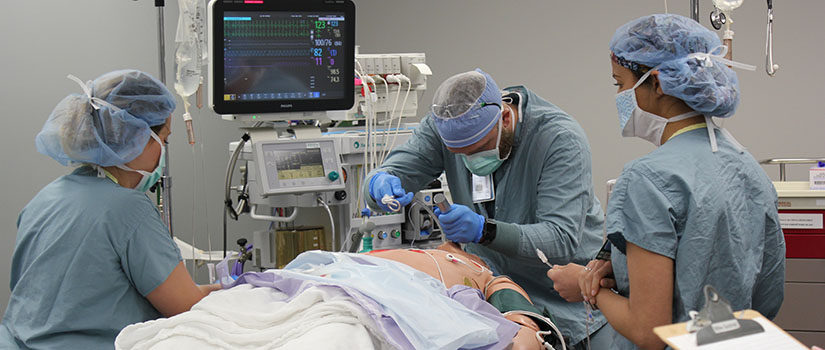The University of South Carolina School of Medicine Columbia’s Graduate Program in Nurse Anesthesia, which has been producing skilled nurse anesthetists for more than 50 years, is moving to provide a higher level of education for its students.
Beginning in May 2021 the program will transition to offer a Doctor of Nursing Anesthesia Practice in Nurse Anesthesia, in accordance with the Council on Accreditation of Nurse Anesthesia Educational program’s requirement that all schools graduate only doctoral level CRNAs beginning in 2025. The program’s first doctoral class of 30 students will matriculate on May 10 to begin their 36 months of training.
Kevin LeBlanc, program director of the program and a clinical professor in the Department of Pharmacology, Physiology and Neurology, says the move to providing a doctoral level of training will allow students to better interpret and implement the available research into practice.
“Much of what we are adding to our curriculum is learning how to interpret research and then put it into their practice,” he says. “It is an expansion of knowledge and practice. We will give our students better tools to provide for better analysis of current research and data to implement in the health care process.”
The transition to a doctoral level degree will also strengthen the program’s relationship with its clinical partners, while ensuring that a strong emphasis on clinical training will continue.
“Students will develop quality improvement projects that hospitals are also interested in pursuing,” says LeBlanc. “The students will do the research, then present their findings to hospital administration for possible implementation. That means better health care for everyone in the future.”
While the School of Medicine’s program is not the first to transition to a doctoral program, there are several factors that differentiate the program from others.
“Our individualized attention and smaller classes offered through our two locations in Columbia and Greenville are what truly what sets us apart from many other programs,” LeBlanc says. “Our faculty-to-student ratio is very favorable to the student and the one-on-one attention that each receives.”
The demand for CRNAs continues to increase and LeBlanc is proud that many graduates choose to remain in South Carolina.
“Most of our graduates are hired or potentially hired before graduation,” LeBlanc says, “partially because of the reputation of our program. Approximately sixty percent of our graduates stay here to help fill the needs in our state with many choosing to work in underserved areas.”
